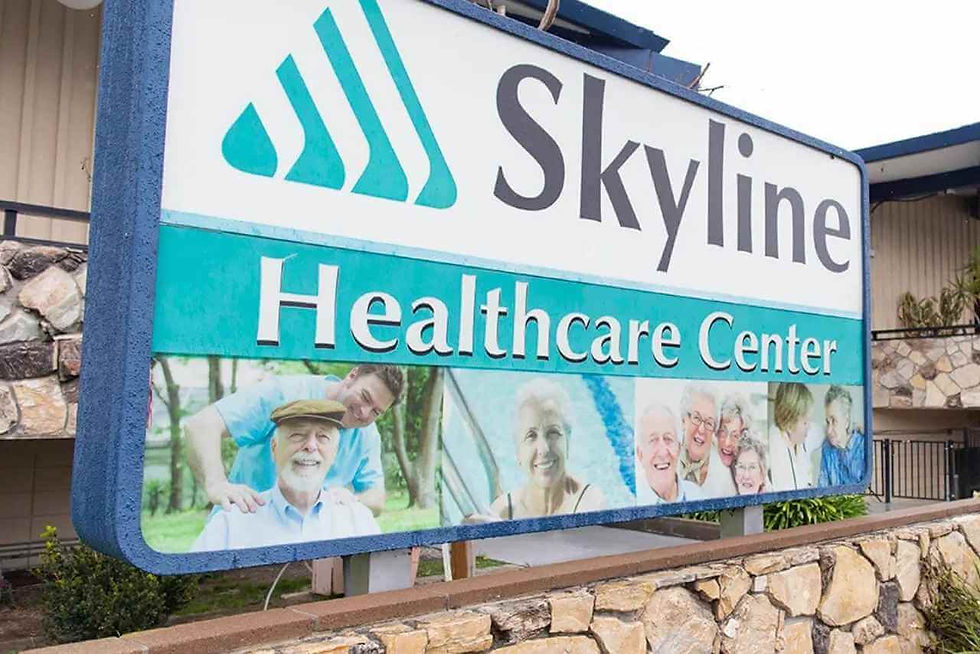Medicare Advantage News: How Trilogy is Navigating Medicare in 2025
- Md. Parvez
- Mar 6
- 2 min read

In recent Medicare Advantage news, American Healthcare REIT (NYSE: AHR) executives have praised Trilogy for its ability to navigate changing Medicare and Medicaid policies. With ongoing concerns about possible Medicaid cuts and Medicare Advantage reimbursement rates, Trilogy’s strategic approach offers valuable insights into the evolving healthcare landscape.
Trilogy’s Adaptive Business Model
Trilogy has demonstrated remarkable flexibility in shifting its focus away from skilled nursing facilities (SNFs) and toward assisted living (AL) and independent living (IL) segments. This transition is crucial in mitigating risks associated with potential Medicaid reductions while capitalizing on Medicare and private pay opportunities.
According to AHR executives, Trilogy’s properties are designed to convert skilled nursing beds into AL or memory care units when needed. This adaptability gives Trilogy a competitive edge in an industry where reimbursement policies can significantly impact revenue streams.
Medicare Advantage News on Skilled Nursing
Medicare Advantage plans have been a major topic in healthcare discussions, particularly in the skilled nursing sector. Many SNF operators have raised concerns about lower reimbursement rates under these plans. However, Trilogy’s high-quality care and strong reputation have allowed it to negotiate favorable rates with Medicare Advantage providers.
Trilogy’s Chief Operating Officer, Gabe Willhite, emphasized that the company’s commitment to superior care has driven demand, leading to consistently higher occupancy rates compared to national averages. This demand enables Trilogy to secure better reimbursement rates from Medicare Advantage providers while also increasing private pay revenue.
Expanding Value-Based Care Opportunities
One of the emerging trends in Medicare Advantage news is the growing emphasis on value-based care. Trilogy is well-positioned to benefit from this shift, as its scale in regional markets allows for efficient management of value-based care reporting and additional revenue streams.
“Value-based care is expanding in the skilled nursing setting, and Trilogy has yet to unlock its full potential in this area,” Willhite stated. As more healthcare providers integrate value-based payment models, Trilogy’s ability to adapt and leverage these opportunities could lead to significant financial growth.
Trilogy’s Growth and Future Investments
Looking ahead, AHR executives highlighted a strong investment pipeline for 2025. The company plans to invest $140 million in Trilogy development projects, including new campuses, independent living villas, and expansions of existing facilities. These developments align with Trilogy’s strategic shift toward assisted living and memory care, reducing its reliance on Medicaid-dependent skilled nursing services.
AHR’s broader investment strategy also includes acquiring properties below replacement cost and prioritizing assets that fit within the company’s geographic footprint. This disciplined approach ensures long-term sustainability and profitability, even amid potential Medicare and Medicaid policy changes.
Conclusion
Trilogy’s ability to adapt to the challenges posed by Medicare Advantage plans and Medicaid funding uncertainties sets a benchmark for the healthcare industry. By focusing on high-quality care, diversifying revenue streams, and strategically expanding its footprint, Trilogy remains well-positioned for continued success.
As Medicare Advantage news continues to shape the future of skilled nursing and senior care, providers must stay informed and proactive in their approach. Trilogy’s model offers valuable lessons in resilience and innovation, ensuring that healthcare organizations can navigate regulatory changes while maintaining high standards of patient care.



Comments